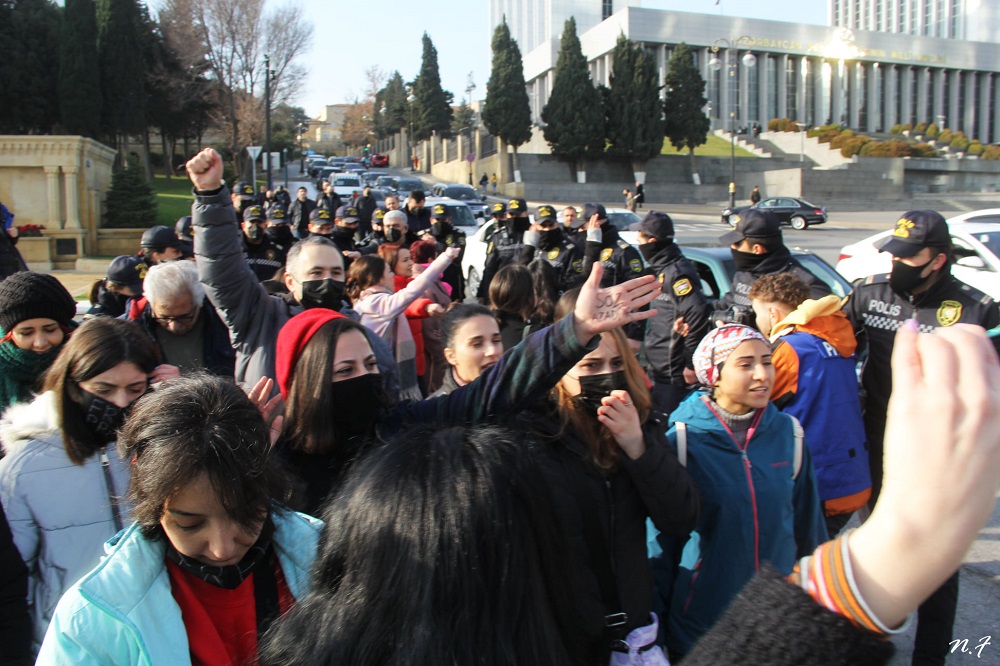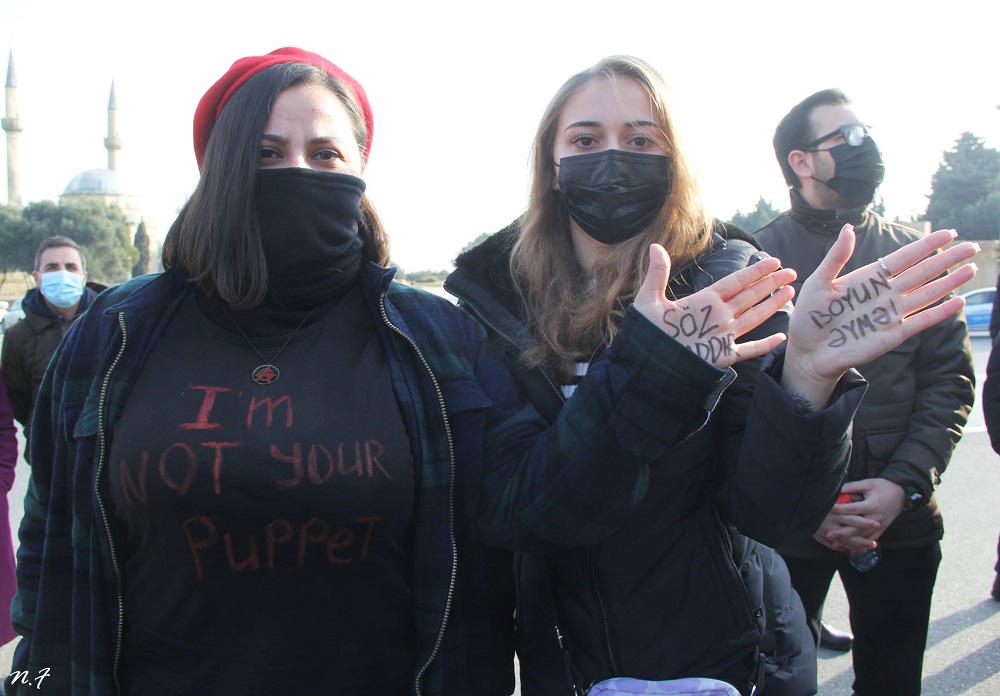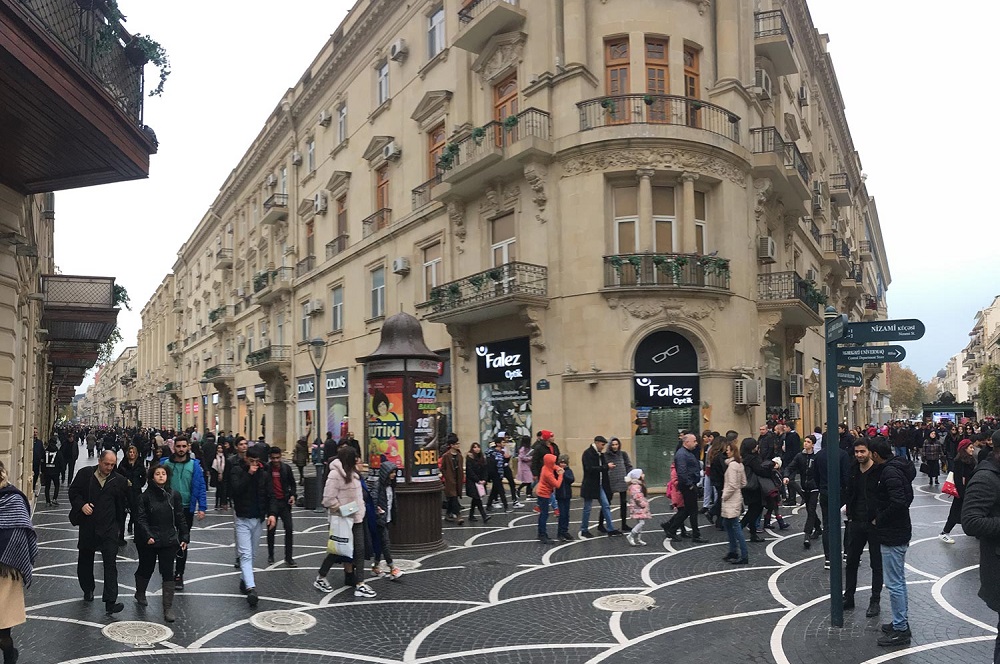Venice Commission: Azerbaijan's new Media law is “unacceptable” for Council of Europe member state
Venice Commission says Azerbaijani new law on media ‘unacceptable’
“Such a law cannot be applied by a member state of the Council of Europe”, the Venice Commission said about the Media Law adopted in Azerbaijan at the end of 2021. The adoption of this law was accompanied by mass protests by independent journalists in Baku. According to the expert, the country has witnessed another ‘stillborn’ document, which is not working yet.
- Azerbaijan extends Covid induced quarantine, land borders will remain closed until September 1
- “Home, to Europe” – one of Georgia’s most crowded rallies in recent years. Photo/video
- Abkhaz activist goes on hunger strike, demands authorities to reduce fuel prices
On June 17-18, at the 131st plenary session of the Venice Commission, the legal opinion on the “law on Media” adopted in Azerbaijan was discussed. The 22-page document was the result of the work of four experts of the commission.
The Venice Commission, officially the European Commission for Democracy through Law, is an advisory body on constitutional law established under the Council of Europe in 1990.
Since 2002, countries that are not members of the Council of Europe can also participate in the work of the commission. Sessions are held in Venice, hence the unofficial name of the commission.
60 states are members of the commission, including all member states of the Council of Europe.
“Such a law cannot be applied in a member state of the Council of Europe,” is how, in the opinion of Azerbaijani lawyer Khalid Agali, one can briefly summarize the opinion of experts on the law.
“Even before it was adopted in a hurry, at the end of last year in parliament, we called this law unacceptable and said that this document would not bring anything good to our media, on the contrary, it would strike at it. We prepared proposals on 20-30 pages, which, unfortunately, were not taken into account. Those suggestions. which we prepared almost in time pressure, were focused on 20-25 articles of the bill. The Venice Commission also focused almost all of its attention on those very articles”, the lawyer wrote on his Facebook page.
What does the conclusion of the Venice Commission say?
Khalid Agali went on to summarize the legal opinion of the Council of Europe Commission:
“We came to the conclusion that this law can have an even more “chilling effect” in the context of the already extremely limited space for the activities of independent journalism and media in Azerbaijan.
Many articles of the law do not meet Azerbaijani standards for freedom of expression and the media, and do not allow the media to effectively apply the role of “public overseer”. Based on this, the law cannot be applied in its current form.

If the law is not completely repealed, the Venice Commission urgently calls on the Azerbaijani government to take some steps, in particular to repeal several articles of the law on Media, which are the main threat to freedom of expression. These articles are mainly the following:
- Article 26 – to abolish the provisions prohibiting the formation and financing of the media from abroad, the presence of foreign property in the media;
- The media registry should be abolished, or stringent entry requirements should be abolished;
- Conditions for media accreditation should be abolished;
- Restrictions in the law on content should be brought in line with the precedent of Article 10 of the European Convention;
- It is necessary to change the articles on the protection of their sources by journalists;
- Remove the license requirement for platform broadcasters;
- Government structures can only be notified about the publication and distribution of print and online media”.
The “Media Law” in Azerbaijan was adopted in the country’s parliament in the third reading on December 30, 2021. On the same day, a mass protest action of independent journalists against the adoption of this document was held in front of the building of the Milli Majlis (Azerbaijani parliament).
On February 8, 2022, Azerbaijani President Ilham Aliyev signed a decree on the entry into force of the Media Law.
Khalid Agali emphasizes that the Venice Commission specifically noted the flaws in the definition of the concept of “journalist” in the law and the ban on covert filming. In conclusion, it is stated that the definition of a journalist in the document should be expanded, covert filming should be allowed if it serves the interests of society. It also notes the need to revise the model for the formation of a regulatory structure for television and radio broadcasting.
“The law aims to regulate almost everything related to the media sector, including online media. The document is exemplary in the context of over-regulation in an already rigid legislative space. It is unfortunate that the law leaves no room for media self-regulation, the state agency is effectively taking on the role of a media ministry, and limits the very potential for responsible journalism to exist. The law is aimed at restricting the activities of the media, instead of providing the necessary conditions for the media to exercise the role of a “public overseer”, the Venice Commission concluded.
Expert commentary
According to the editor of the Azerbaijani edition of JAMnews, Hussein Ismayilbayli, the law never really came into force:
“Despite the fact that the law “on Media” was specifically adopted before the New Year holidays, the president signed it only 40 days later. Prior to this, many international organizations spoke critically about the document adopted in parliament, and experts even expected that the head of state would return the law to parliament for revision. But this did not happen.
What do we actually see almost five months after the law came into force? To be honest, we don’t see anything. It has not actually entered into force.
I have not yet heard from anyone about the Media Registry, about unified journalistic credentials. Independent journalists work quietly, just like they did before. No one is chasing down them or judging them because they are no longer journalists under the new law.
Even the Ministry of the Interior, in the midst of the discussion of the new law, warned of some kind of statement to conduct polls on the streets. This, too, was quickly forgotten.
In other words, we have witnessed another ‘stillborn’ law. It doesn’t actually work.
As for the conclusion of the Venice Commission, I’m not sure that someone will change the law which has already been adopted and signed by the president. But it is also hard to believe that the law will start to work. Such an incomprehensible situation, it would seem, is not at all new to our realities”, Ismailbayli said.





















